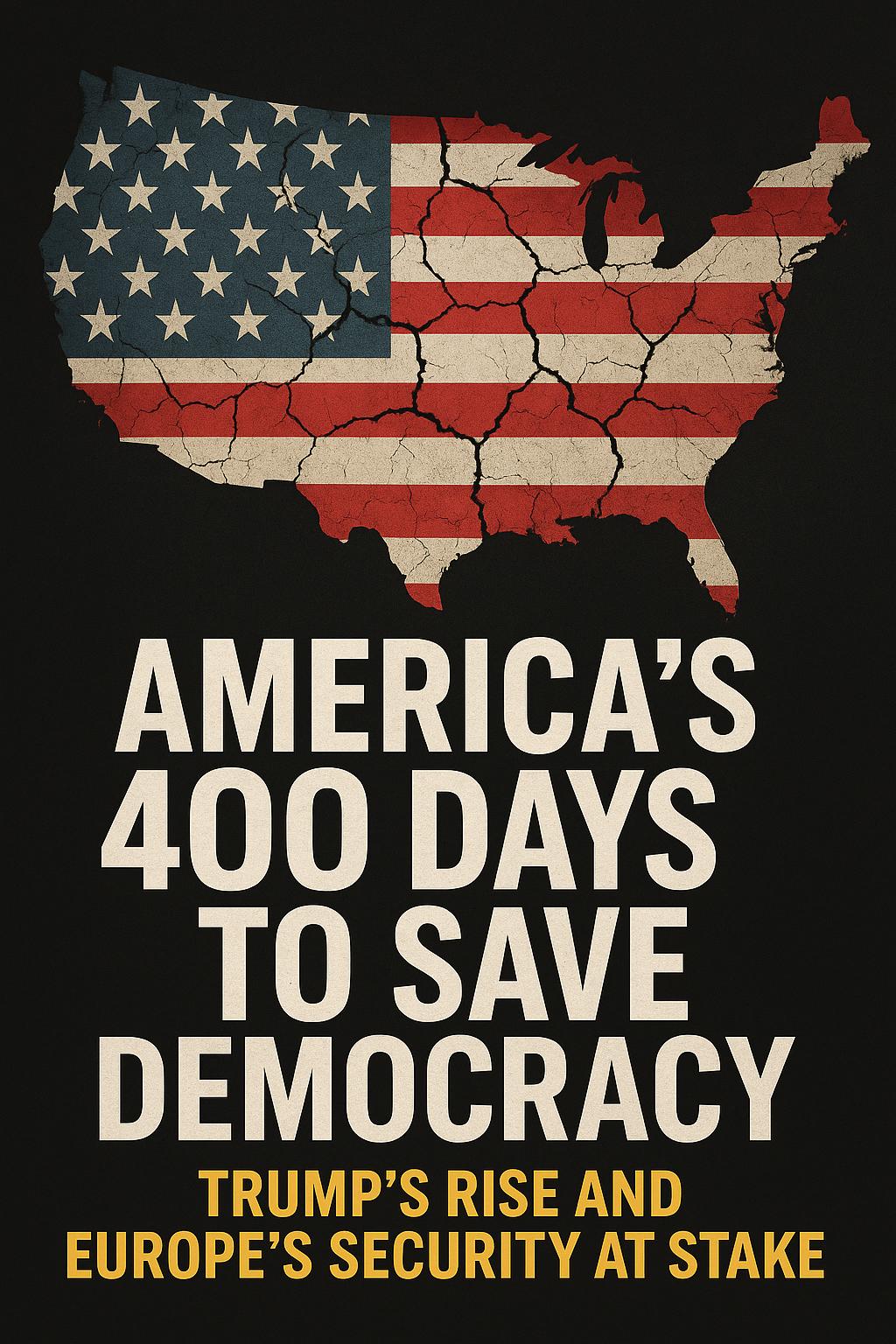The United States was once regarded as the stronghold of democracy. Its Constitution inspired revolutions, and its institutions were treated as models across the world. Yet today, that image is cracking. Timothy Garton Ash warns that Americans have barely 400 days to save their republic. The warning is not rhetorical. It reflects a reality where democracy is no longer guaranteed.
The 2026 midterm elections will serve as a test. Either the democratic coalition mobilizes to defend constitutional norms, or Donald Trump and his movement consolidate power. If the second outcome prevails, the fragile equilibrium of American democracy could collapse.
Trump’s authoritarian drift
Donald Trump’s role in this decline is not accidental. He thrives on dismantling democratic restraints. He undermines elections, delegitimizes opponents, and demands loyalty not to the republic but to himself. His leadership style is built on polarization. Every compromise is betrayal. Every critic is an enemy.
The danger lies in repetition. If Trump wins again and controls both the presidency and Congress, he will not be constrained by institutions. He will be empowered by them. What he failed to achieve in his first term—complete domination—could become reality in a second.
The hollowing of the system
Trump’s rise exposed, but did not create, the brittleness of the American system. Decades of gerrymandering have turned elections into predictable rituals in many states. Voter suppression has reduced the voice of minorities. Money has transformed politics into a marketplace where billionaires and corporate lobbies dictate the terms.
This is not just dysfunction. It is erosion. A republic that ceases to represent its citizens is no longer a democracy. It becomes a stage where elites play out their battles while the public watches, disillusioned and powerless.
Polarization as civil cold war
The American people are no longer divided simply by ideology. They are divided by worldview. Each side lives in its own information bubble, reinforced by media ecosystems that reward outrage over reason. Disagreement is treated as treason. Violence lurks at the edges of political discourse, no longer unthinkable.
The result is a civil cold war. It is not fought with armies, but with mistrust, suspicion, and hatred. And like all cold wars, it corrodes the foundations of society.
The European dimension
Alexander Hurst expands the warning: the danger will not remain in America. Trump’s open disdain for NATO, his transactional approach to alliances, and his sympathy for Vladimir Putin threaten Europe directly. If the United States abandons its role as guarantor of the Western order, Europe will be forced to face hostile powers with weakened defenses.
A U.S. drift toward authoritarianism would embolden strongmen elsewhere. Moscow and Beijing would see opportunity. Populists across Europe would point to America’s collapse as justification for their own. The fall of American democracy would trigger a chain reaction.
Lessons from history
History offers grim warnings. Democracies have collapsed before. In the 1930s, Germany and Italy slid into authoritarianism through legal means. Institutions crumbled when leaders eroded them from within. Citizens underestimated the danger until it was too late.
The American system was once considered immune. Yet no republic is eternal. Rome fell when corruption and power struggles hollowed it out. Weimar Germany fell when elites underestimated the radicalism of a demagogue. The lesson is simple: democracy dies when its defenders assume it cannot.
The psychology of strongmen
Authoritarian leaders exploit predictable patterns of human behavior. They thrive on fear, create enemies, and promise protection. Evolutionary psychology explains why these strategies work. Humans are wired to follow dominant leaders in times of uncertainty. Loyalty to a strongman feels safer than loyalty to abstract institutions.
Trump plays this instinct skillfully. He presents himself as the only protector against chaos, immigrants, crime, or foreign enemies. His followers interpret attacks on him as attacks on themselves. This psychological bond is far stronger than rational arguments.
Europe’s responsibility
Europe cannot wait passively. If America falters, the European Union must step into a role it has long avoided: defending liberal democracy. That means building military capacity independent of Washington, strengthening institutions against domestic populists, and forming stronger partnerships with democracies beyond the Atlantic.
The danger is real. A weakened or authoritarian United States would not just leave Europe without protection. It would leave Europe facing an alliance of dictatorships.
The last chance for renewal
The coming year will determine whether America can reverse its decline. That requires more than defeating Trump. It requires addressing the deeper flaws: money in politics, gerrymandering, voter suppression, and the collapse of trust.
If Americans fail, the consequences will be global. The United States will cease to be the model of freedom it once claimed to be. Europe will be forced into a harsher world. And democracy itself will face its most serious retreat in decades.
A warning to the world
Timothy Garton Ash and Alexander Hurst converge on one urgent truth. Democracy is not permanent. It must be defended in every generation. Today, it is the Americans who face that test. But if they fail, the world will follow them into an era where authoritarianism is no longer the exception, but the rule.
Source: theguardian.com

Leave a Reply